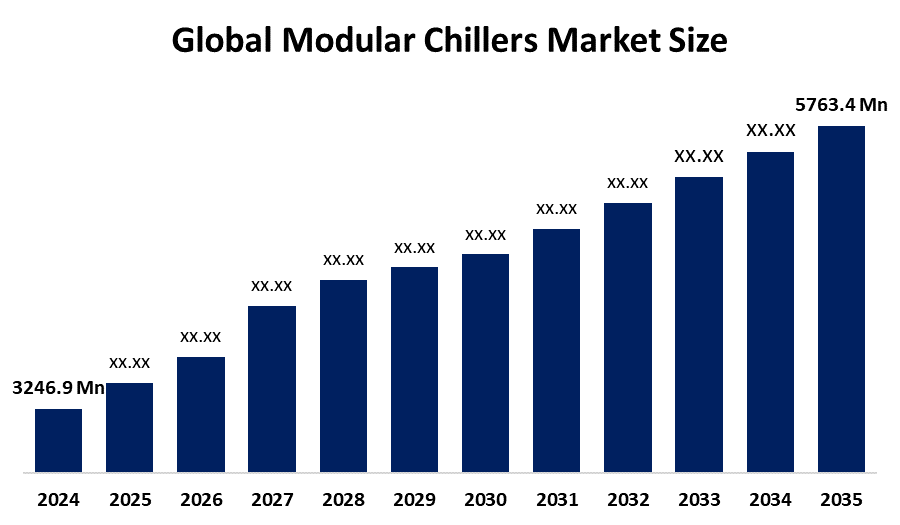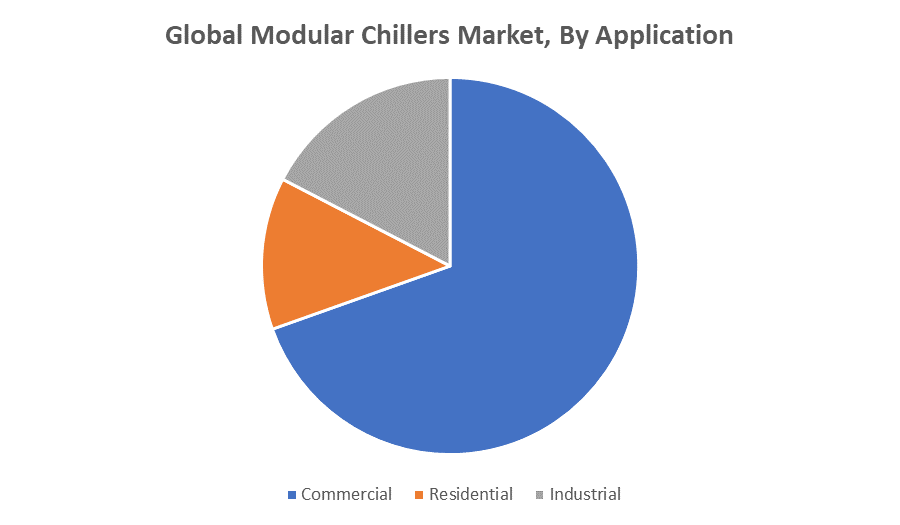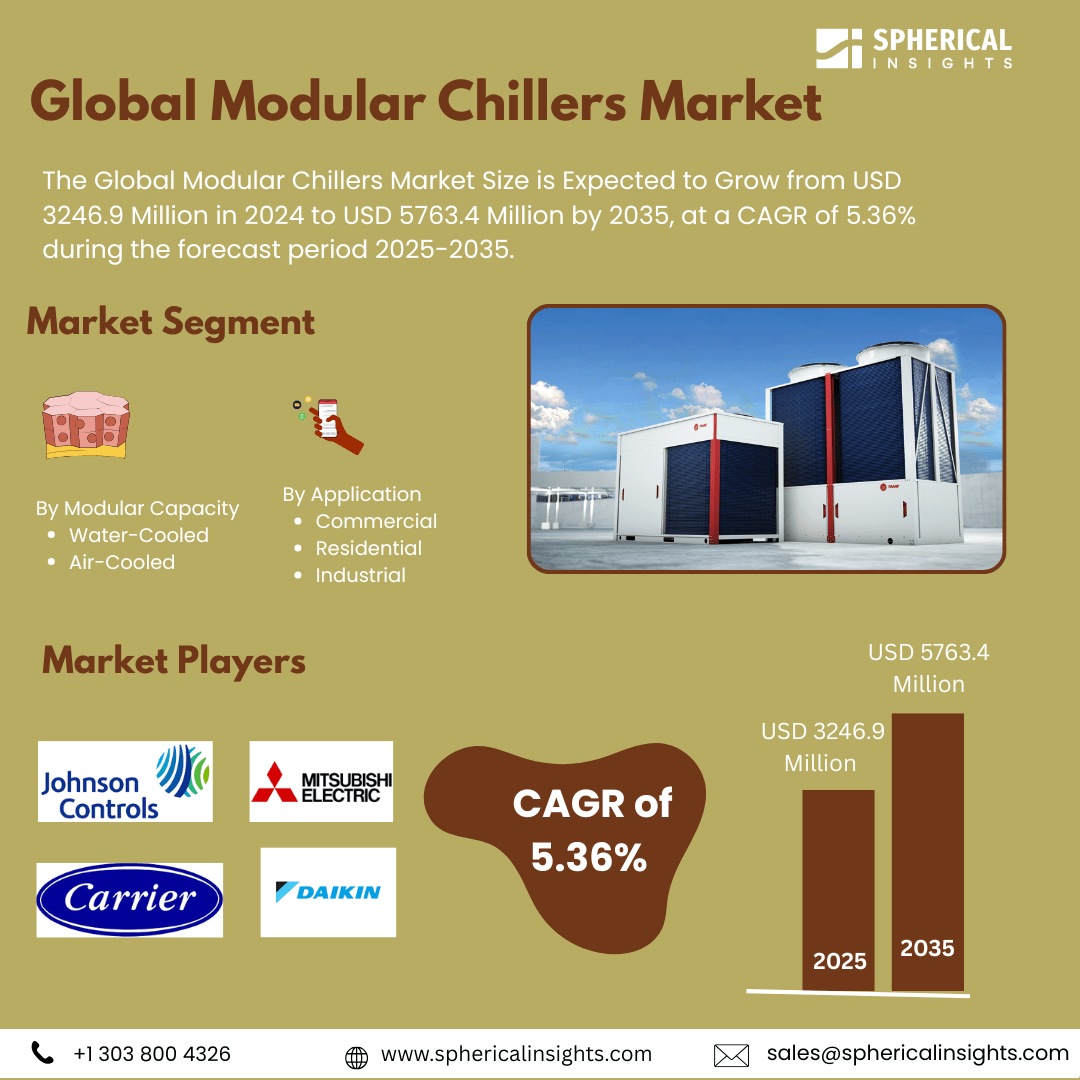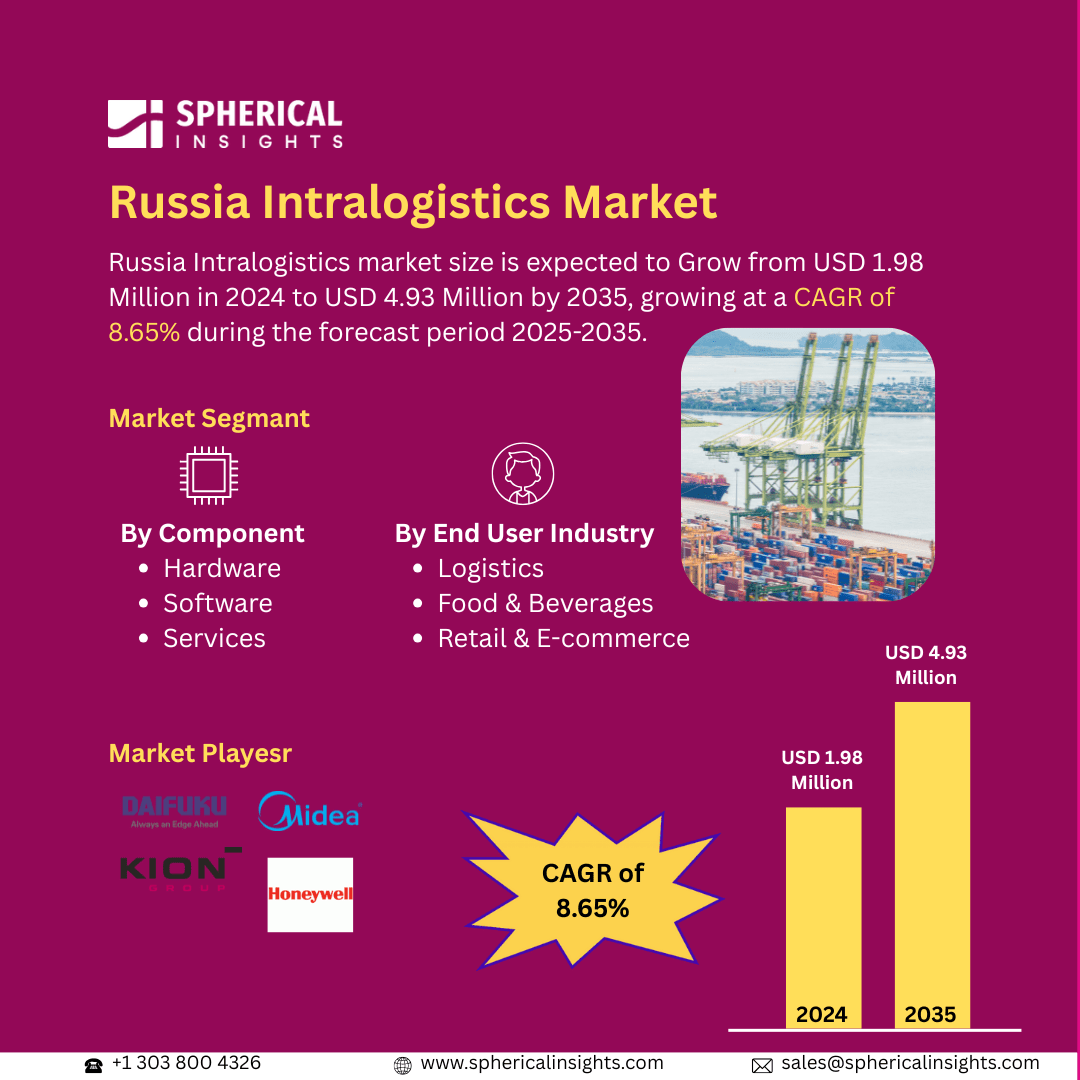Global Modular Chillers Market Insights Forecasts to 2035
- The Global Modular Chillers Market Size Was Estimated at USD 3246.9 Million in 2024
- The Market Size is Expected to Grow at a CAGR of around 5.36% from 2025 to 2035
- The Worldwide Modular Chillers Market Size is Expected to Reach USD 5763.4 Million by 2035
- Middle East & Africa is expected to grow the fastest during the forecast period.

Modular Chillers Market
The Global Modular Chillers Market Size is experiencing steady growth, driven by increasing demand for energy-efficient cooling solutions in commercial, industrial, and residential sectors. Modular chillers are compact, scalable systems that offer flexibility, reduced downtime, and lower operational costs. Their ability to be added or removed based on cooling demand makes them ideal for modern infrastructure. Government initiatives worldwide promoting energy efficiency and sustainable building practices, such as LEED certification in the U.S. and India’s ECBC (Energy Conservation Building Code), are further propelling market growth. Additionally, rising urbanization, climate change, and the expansion of data centers are contributing to the increased adoption of modular chillers. The market is also witnessing technological advancements like integration with smart building systems and eco-friendly refrigerants. Key players are focusing on innovation and strategic partnerships to strengthen their global presence. As awareness around climate impact grows, the modular chillers market is expected to expand significantly in the coming years.
Attractive Opportunities in the Modular Chillers Market
- The integration of IoT and AI-based energy management in modular chillers enables real-time monitoring, predictive maintenance, and improved energy efficiency, which reduces operational costs. As smart buildings and data centers become more prevalent, demand for these intelligent, connected cooling systems rises sharply. Additionally, the use of eco-friendly, low-GWP refrigerants supports compliance with environmental regulations and appeals to sustainability-focused customers. These technological advancements create strong opportunities for product differentiation and market expansion.
- Rapid urbanization and industrialization in these regions are driving substantial growth in commercial, residential, and industrial infrastructure, increasing the need for scalable and energy-efficient cooling solutions. Many countries are adopting green building standards and sustainability initiatives, which favor modular chillers. Furthermore, these markets have significant untapped potential due to increasing awareness and government support, making them prime targets for investment and expansion. Retrofitting aging HVAC systems in these areas also opens further growth avenues.
Global Modular Chillers Market Dynamics
DRIVER: Growing emphasis on sustainable infrastructure
The global modular chillers market is expanding due to environmental, technological, and economic drivers. A growing emphasis on sustainable infrastructure has led industries to adopt energy-efficient HVAC solutions, with modular chillers standing out for their flexibility and scalability. Urban development and the rise in smart buildings and data centers demand reliable, space-saving cooling systems. Supportive government policies and green certification standards worldwide are pushing the transition toward low-emission technologies. Innovations such as intelligent control systems and the use of low-GWP refrigerants are further enhancing product appeal. The market benefits from faster installation, reduced operational costs, and minimal downtime.
RESTRAINT: Limited awareness about long-term energy savings and benefits
High initial installation and setup costs can deter small and medium-sized enterprises from adopting these systems. Limited awareness about long-term energy savings and benefits, especially in developing regions, hampers market penetration. Additionally, the complexity of integrating modular chillers with existing HVAC infrastructure can increase project timelines and costs. Concerns over refrigerant regulations and environmental compliance also pose challenges, requiring constant upgrades. Furthermore, in regions with low energy costs, the incentive to invest in energy-efficient solutions is reduced, limiting demand. These factors collectively slow the broader adoption of modular chillers.
OPPORTUNITY: Technological innovations such as IoT integration
The modular chillers market presents significant growth opportunities driven by evolving industry needs and environmental priorities. The rapid expansion of smart buildings, data centers, and healthcare facilities globally is increasing the demand for efficient and scalable cooling solutions. Growing adoption of green building certifications like LEED and BREEAM offers further market potential, as modular chillers align well with sustainability standards. Technological innovations such as IoT integration, AI-based energy management, and the use of low-GWP refrigerants are opening new avenues for product development. Additionally, emerging economies in Asia Pacific, Latin America, and Africa present untapped markets due to rising urbanization and infrastructure investments. Retrofitting aging HVAC systems in developed nations also offers a major opportunity for modular chiller adoption in the coming years.
CHALLENGES: Compatibility issues with aging HVAC systems make retrofitting difficult and costly
One major hurdle is the substantial initial investment, which can discourage adoption among budget-conscious users. Compatibility issues with aging HVAC systems make retrofitting difficult and costly. Additionally, a shortage of skilled technicians for installation and maintenance affects system performance and reliability. Frequent changes in environmental regulations require continuous product adaptation, increasing R&D costs. Supply chain instability and fluctuating component prices further strain manufacturers, impacting delivery timelines and overall market stability.
Global Modular Chillers Market Ecosystem Analysis
The global modular chillers market ecosystem comprises component suppliers, OEMs, system integrators, distributors, and end-users across commercial, industrial, and institutional sectors. Growth is driven by rising demand for energy-efficient HVAC solutions, government sustainability mandates, and smart infrastructure development. Asia-Pacific leads due to rapid urbanization, while North America and Europe focus on retrofits and smart systems. Key challenges include high upfront costs, skilled labor shortages, and regulatory compliance. Innovation in IoT integration, eco-friendly refrigerants, and localized manufacturing is shaping market expansion.
Based on the modular capacity, the air-cooled segment is expected to grow at a considerable CAGR over the forecast period
The air-cooled segment is expected to grow at a considerable CAGR over the forecast period due to its advantages like easier installation, lower maintenance costs, and suitability for areas with limited water availability. Its energy-efficient operation and adaptability to various applications in commercial and industrial sectors are driving increased adoption. Additionally, air-cooled modular chillers align well with sustainability goals, making them a preferred choice amid tightening environmental regulations and growing demand for flexible, scalable cooling solutions.
Based on the application, the commercial segment is expected to grow at a considerable CAGR over the forecast period

The commercial segment is expected to grow at a considerable CAGR over the forecast period. This growth is driven by increasing demand for efficient cooling solutions in offices, shopping malls, hotels, and healthcare facilities. Rising urbanization and expanding infrastructure projects boost the need for scalable, reliable modular chillers in commercial buildings. Additionally, growing awareness of energy efficiency and stricter building codes encourage adoption, making modular chillers ideal for meeting fluctuating cooling demands while reducing operational costs.
Asia Pacific is anticipated to hold the largest market share of the modular chillers market during the forecast period
Asia Pacific is anticipated to hold the largest market share in the modular chillers market during the forecast period. Rapid urbanization, industrial growth, and expanding commercial infrastructure in countries like China and India are key contributors. Additionally, increasing investments in data centers, healthcare, and smart buildings drive demand for energy-efficient, scalable cooling solutions. Government initiatives promoting sustainable construction and strict environmental regulations further support market growth in the region, making Asia Pacific a dominant player in the modular chillers landscape.
Middle East & Africa is expected to grow at the fastest CAGR in the modular chillers market during the forecast period
The Middle East & Africa region is expected to grow at the fastest CAGR in the modular chillers market during the forecast period. This rapid growth is driven by significant investments in smart city projects, expanding commercial and industrial infrastructure, and the rising demand for efficient cooling solutions in hot climates. Additionally, government initiatives focused on energy efficiency and sustainability, along with increasing adoption of advanced HVAC technologies, are accelerating the region’s modular chiller market development.
Recent Development
- In March 2024, Technotrans launched its EcoTecChiller modular system, designed to deliver high energy efficiency and flexible installation for diverse industrial applications. The chiller’s modular design allows easy scalability to match varying cooling needs while minimizing downtime during integration. It incorporates eco-friendly components to reduce environmental impact and optimize energy use. This product strengthens Technotrans’s presence in the expanding modular chillers market, catering to industries seeking reliable and sustainable cooling solutions.
Key Market Players
KEY PLAYERS IN THE MODULAR CHILLERS MARKET INCLUDE
- Daikin Industries, Ltd.
- Johnson Controls International plc
- Mitsubishi Electric Corporation
- Carrier Global Corporation
- Trane Technologies plc
- Smardt Chiller Group
- Midea Group Co., Ltd.
- Gree Electric Appliances Inc.
- Technotrans SE
- Baltimore Aircoil Company
- Others
Market Segment
This study forecasts revenue at global, regional, and country levels from 2020 to 2035. Spherical Insights has segmented the modular chillers market based on the below-mentioned segments:
Global Modular Chillers Market, By Modular Capacity
Global Modular Chillers Market, By Application
- Commercial
- Residential
- Industrial
Global Modular Chillers Market, By Regional Analysis
- North America
- Europe
- Germany
- UK
- France
- Italy
- Spain
- Russia
- Rest of Europe
- Asia Pacific
- China
- Japan
- India
- South Korea
- Australia
- Rest of Asia Pacific
- South America
- Brazil
- Argentina
- Rest of South America
- Middle East & Africa
- UAE
- Saudi Arabia
- Qatar
- South Africa
- Rest of the Middle East & Africa
FAQs
Q: What is the market size of the Global Modular Chillers Market in 2024?
A: The Global Modular Chillers Market size was estimated at USD 3246.9 million in 2024.
Q: What is the forecasted CAGR of the Global Modular Chillers Market from 2025 to 2035?
A: The market is expected to grow at a CAGR of around 5.36% during the period 2025–2035.
Q: What is the projected market size of the Global Modular Chillers Market by 2035?
A: The market size is expected to reach USD 5763.4 million by 2035.
Q: Which region is anticipated to hold the largest market share in the Global Modular Chillers Market during the forecast period?
A: Asia Pacific is anticipated to hold the largest market share due to rapid urbanization, industrial growth, and expanding infrastructure.
Q: What are the key drivers fueling growth in the Global Modular Chillers Market?
A: Key drivers include increasing demand for energy-efficient cooling solutions, government initiatives promoting sustainable infrastructure, rapid urbanization, and the rise of smart buildings and data centers.
Q: What challenges are limiting the adoption of modular chillers globally?
A: Challenges include high initial installation costs, limited awareness of long-term energy savings, compatibility issues with aging HVAC systems, and skilled labor shortages.
Q: Who are the top players operating in the Global Modular Chillers Market?
A: Key players include Daikin Industries, Johnson Controls International, Mitsubishi Electric, Carrier Global Corporation, Trane Technologies, Smardt Chiller Group, Midea Group, Gree Electric Appliances, Technotrans SE, and Baltimore Aircoil Company.





